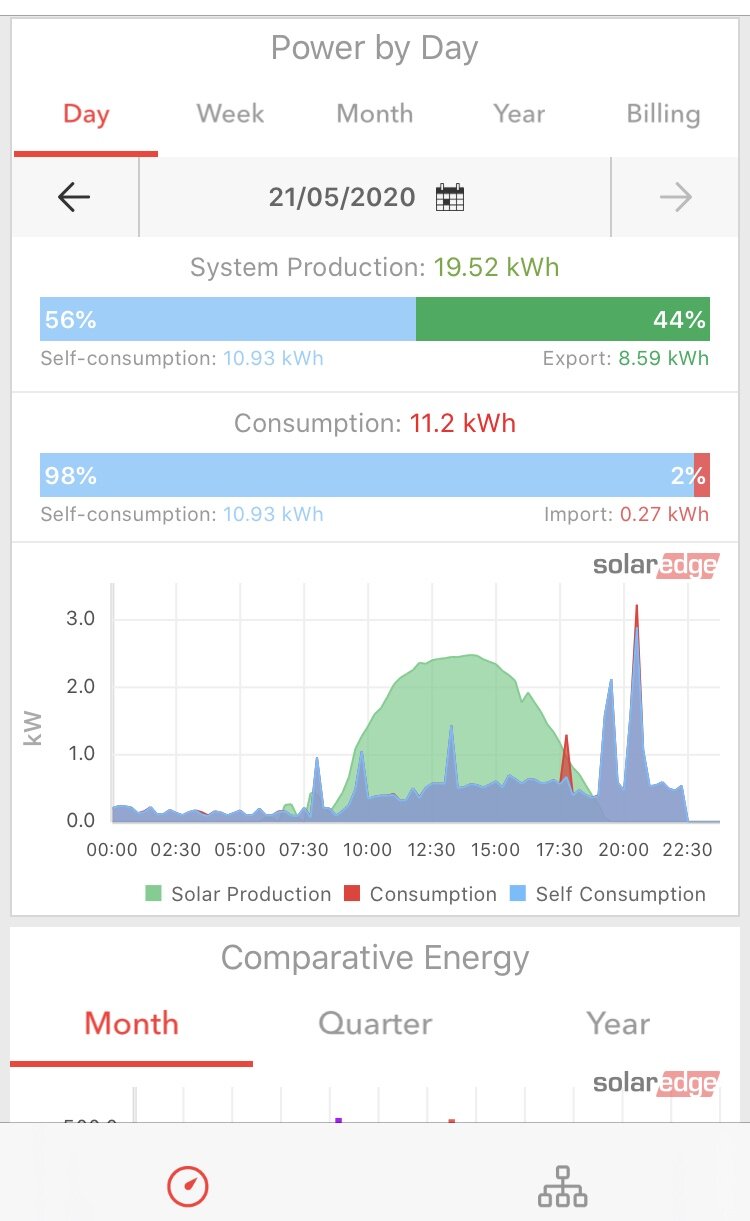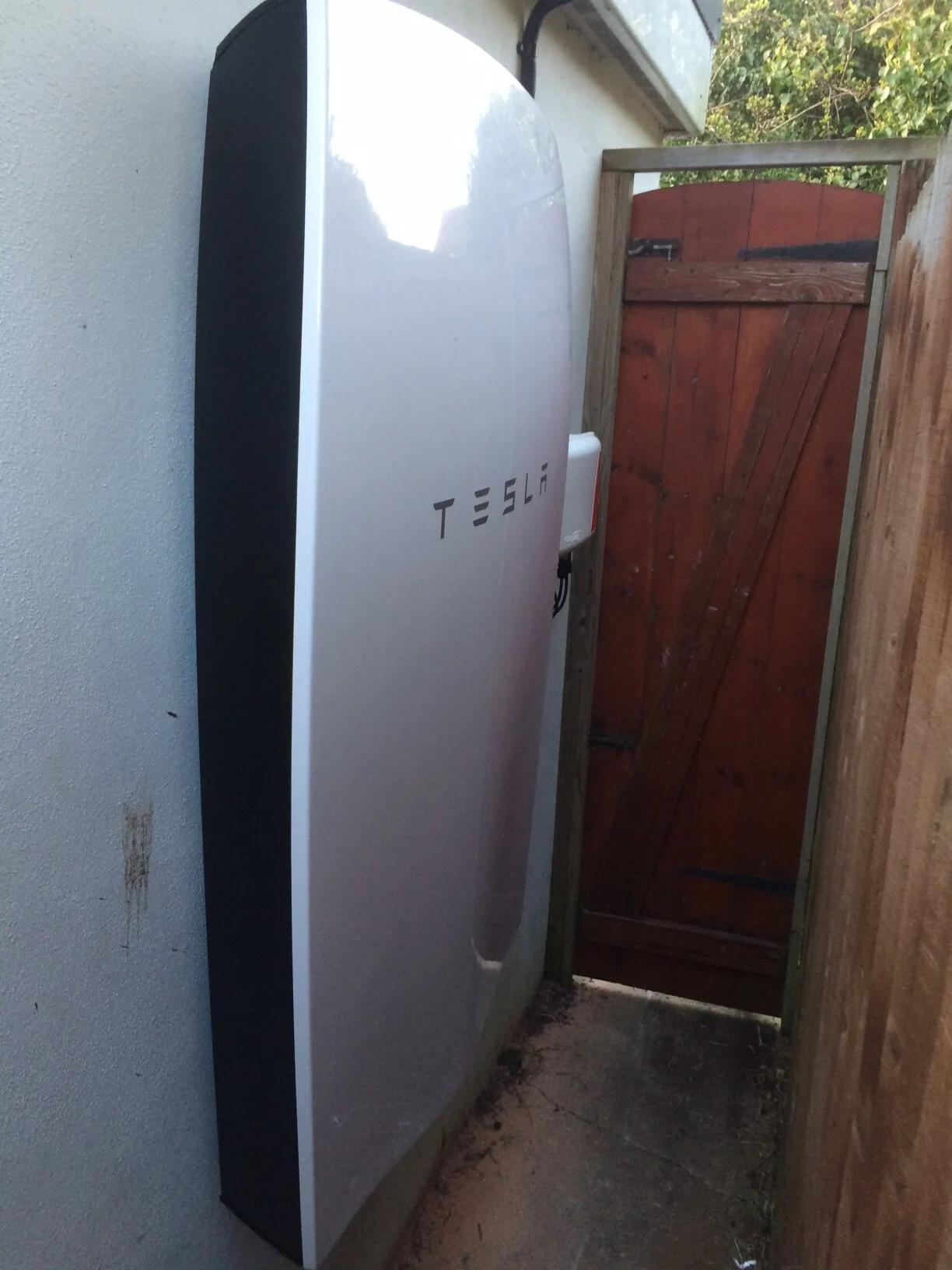Why I spent my inheritance on solar panels
Hello! My name is Andy.
In 2014, I inherited some money after my dad sadly passed away. It was an unexpected and generous gift. Rather than it going to the mortgage, or buying more things that we didn’t really need, my wife and I decided to take action and put our-money-where-our-mouths-were about becoming more sustainable. The time had come to invest in renewable energy for our home.
Solar Panels producing ££ on the home studio
Having Solar Panels installed is one of the main personal actions you can take to help reduce carbon emissions in your home, save you some money, and become mostly energy independent. However, there are some realities that I’d like to share that may help if you are deciding to take this path. It's a significant financial commitment, and solar panels are only one part of the equation.
My father-in-law recommended a company called Solarthem so we got them in for a quote. We live in the south of England which gets quite a lot of sun (relatively speaking!) and we also have a flat roof on my wife’s music studio that was the perfect size to generate more than enough energy for our house. So we went for it, and within a few months we were up and running.
The panels and accompanying equipment are all very good quality, made by a company called Solar Edge. Being mildly geeky, I was excited to see that the panels came with an app that could tell you exactly how much was being generated, and when. In the pictures below you will see that Green shows energy produced by solar, Red is energy from the grid, and Blue is ‘Self consumption’ i.e: not from the grid. The app also showed an approximation of how much carbon we were saving.
Day view
Year view
Battery power night view
The Feed in Tariff (FIT) is a government initiative which offsets carbon emissions by paying you for not using electricity from the national grid. We started receiving payments from Ecotricity for electricity we weren’t using.
Reality hit after about 6 months, when winter came. The truth was that it was going to take 16 years to pay off the panels. This is not what the salesman had told me! I felt like I’d been had. They had crunched the numbers in front of me, and told me I'd be making money in 10 years time. If you want to see my calculations, take a look at this spreadsheet. *Note that costs have changed since I did this - panels have come down, but the battery has gone up.
I thought I’d made a sound investment, and a sustainable one at that, so I started trying to justify it all by changing habits, like using the washing machine only when it was sunny. I looked into electric heating and an electric car and tried to figure out if this would ultimately save us more money- but all of it just meant spending more money! Arrrgh.
Then, everything changed when Elon Musk launched the Tesla Battery (Powerwall), Solartherm were one of the first UK companies installing domestic solar batteries and we were offered the opportunity to install one, however it meant spending £4000 more. After researching, we decided it made sense to bite the bullet and install the battery, which would make a huge difference to reducing our usage from the grid as we use most of our power in the evenings. With the FIT payments received from the government scheme and the battery supplying nearly all of our own electricity the our electricity bills became ‘net zero’. Our next step was to install a Smartmeter which meant that we would actually get paid for putting our solar power back into the grid!
My calculation is that we will have paid every off in 13 years (so 8 more years to go!) In theory, after that we’d be making money. From an eco-friendly perspective we chose Ecotricity to be our supplier so that our grid power is from a green source. This means that our entire electricity solution is sustainable, but we are not totally ‘off-grid’. Ultimately it would be best to have everything running on electricity- electric car, electric heating and an electric water boiler etc. so there’s potential for reducing our carbon footprint even more. I have started looking into small wind turbines to charge the battery when there is no sun - but that’s for the next Blog post! Here are some interesting information about solar and battery storage:
Unfortunately the current government has closed FIT payments to new applicants, and replaced it with the Smart Export Guarantee. This new scheme is determined by the energy suppliers rather than Ofgem, and from what I have researched so far doesn’t look as good. So if you are considering going with solar, approach with care, and be prepared to carry those costs for some time. You will, however, be doing one of the personal things to help reduce carbon, and perhaps most importantly help to turn the energy tide toward a sustainable future. Personally it feels really great to get our energy from sustainable sources, and I think my father would be happy that I have spent his money on something that makes us feel better as a family and is less harmful to the planet.






